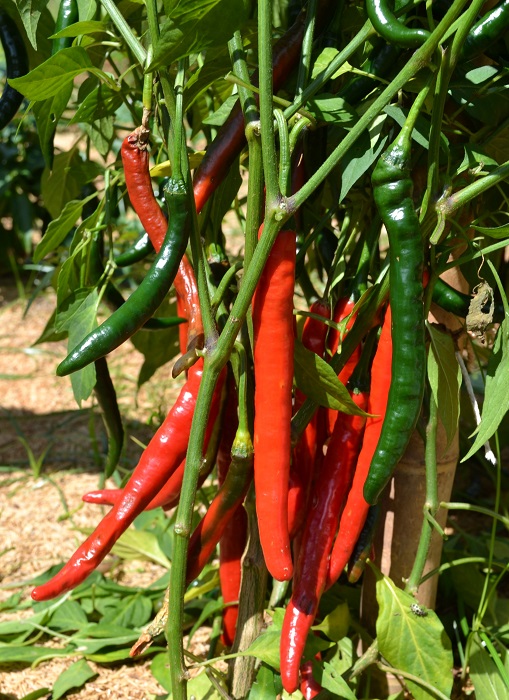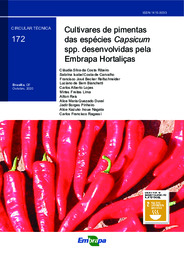Project focuses on diversification by covering new lines of research with peppers
Project focuses on diversification by covering new lines of research with peppers
Mechanized harvesting and organic cultivation of peppers are the main lines of research enlisted in the project "Development of pepper (Capsicum spp.) cultivars with superior agronomic, industrial, and functional characteristics for sustainable production and higher competitiveness in agribusiness", which has been carried out by Embrapa Vegetables (Brasília, DF, Brazil).
Aiming at such goals, Embrapa Vegetables’ pepper breeding and genetic improvement program established the paths to be pursued based on the development of new materials - genetically improved jalapeño and cayenne pepper cultivars, for example - that aggregate high production potential and plant characteristics that allow the mechanization of their harvest.
The pathway continues with the development of habanero pepper cultivars that combine disease and pest resistance with higher physicochemical characteristics, in addition to adjusted agricultural processes, which adapt them to the organic production system.
Also aimed at organic cultivation systems, there are peppers from the murupi and scotch bonnet groups, with new cultivars that are resistant to diseases and have superior production potential and quality of fruits for crops in the main growing regions of Brazil.
According to the researcher and project leader Cláudia Ribeiro, the Embrapa breeding program needs to advance in the development of pepper cultivars adapted to mechanized and semi-mechanized harvesting, with high production potentials, aiming to meet the demands of pepper-growing farmers and agroindustries from different regions of Brazil.
Cultivation in Brazil
With an estimated annual area of 13,000 hectares, total production of 280,000 tons, and yearly market estimated at US$80 million, the cultivation of Capsicum spp. (peppers and bell peppers) is carried out predominantly by smallholders in family production systems.
The market is varied, since the fruit is consumed fresh and is also a raw material for sauce, canning, dehydrated flakes with chilli seeds or chilli powder (paprika), for pharmaceutical industries, and even used as ornamental plants.
Anelise Macedo (MTB 2.749/DF)
Embrapa Vegetables
Press inquiries
hortalicas.imprensa@embrapa.br
Phone number: +55 61 3385-9109
Luís Filipe Escobar, supervised by Mariana Medeiros (Translation - English)
General Secretariat
Further information on the topic
Citizen Attention Service (SAC)
www.embrapa.br/contact-us/sac/


